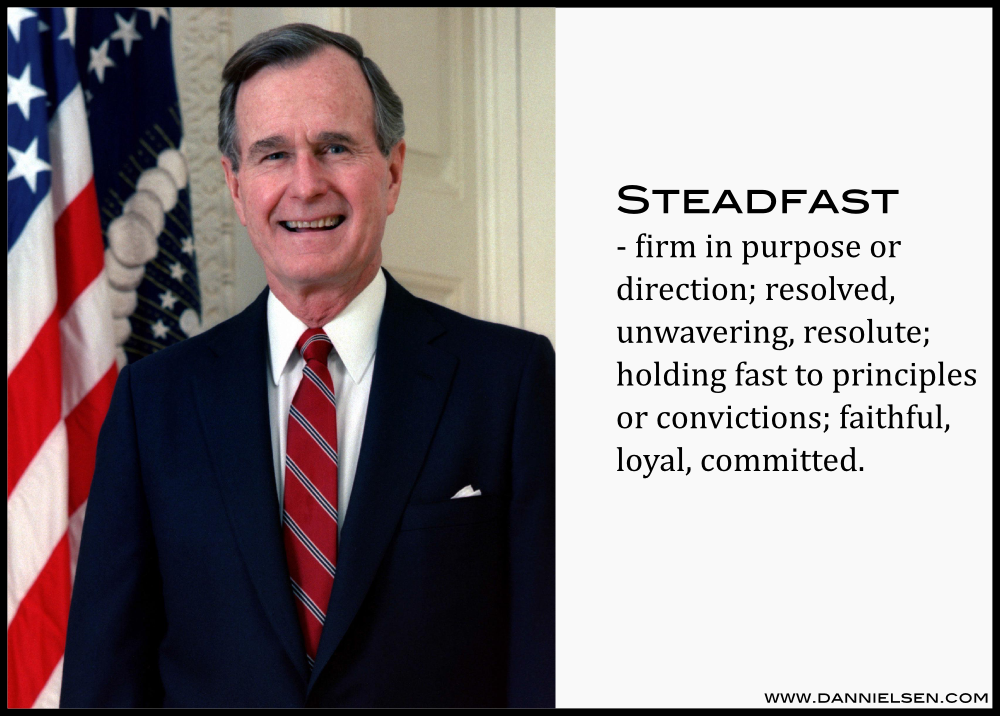
Regardless of political affiliation, I firmly believe we can all learn from the leadership strengths of former U.S. Presidents. In my book, Presidential Leadership: Learning from United States Presidential Libraries & Museums, I take a look at selected strengths of 14 U.S. Presidents. Today I’d like to share an excerpt from the chapter about former United States President George H. W. Bush:
One of the first major political decisions George Bush had to make was regarding civil rights. One element of the Civil Rights Act of 1968 was a fair housing bill that would ban racial discrimination in housing. The bill came to the floor for a vote in April of 1968. At the time, Bush was a Republican representative from Texas, and many of his constituents were vehemently opposed to the bill that the Democratic president, Lyndon B. Johnson, had put before Congress. Bush was put in a difficult position with a big decision to make. He had previously campaigned in opposition to certain civil rights legislation and knew it was what his constituents expected, but at his core George Bush believed in equality. As was his nature, Bush did not take this decision lightly;
You’ve got to wrestle with your conscience. You’ve got to listen to people. It doesn’t come so easy to me that this is right and that’s wrong. It’s never that simple. The tough votes are the ones you agonize over and then you do what you think is right.
Ultimately, after weighing the pros and cons against his own personal convictions, Bush made the decision that he felt was right and voted in favor of the controversial bill.
The outrage and feeling of betrayal within his district was significant, but Bush stood behind his decision with firm conviction, appearing before a hostile crowd of booing and hissing constituents to explain his vote. Bush stood tall before the angry audience, and borrowing from philosopher Edmund Burke, said,
Your representative owes you not only his industry, but his judgment; and he betrays, instead of serving you, if he sacrifices his judgment to your opinion.
He went on to say,
I voted from conviction, not out of intimidation or fear… but because of a feeling deep down in my heart that this was the right thing for me to do.
George Bush’s speech that night was one of the most dramatic events of his political career. By calmly explaining his decision and the personal conviction behind it, Congressman Bush worked his way out of a precarious situation and left the stage that night not to the boos of the crowd, but to resounding applause.
When a leader chooses to do what is right instead of what is easy, there is no guarantee of a good outcome. When George Bush made his decision and acted out of conviction, he had no way of knowing that when he walked away that night he would do so not only with the satisfaction of knowing he had done the right thing, but also with his political future still intact. However, as a leader with steadfast strength of character, it was a risk he was willing to take.
How about you, do you lead with steadfast strength of character, no matter the odds?
If you have a short story about choosing to do what was right instead of what was easy, please share!


